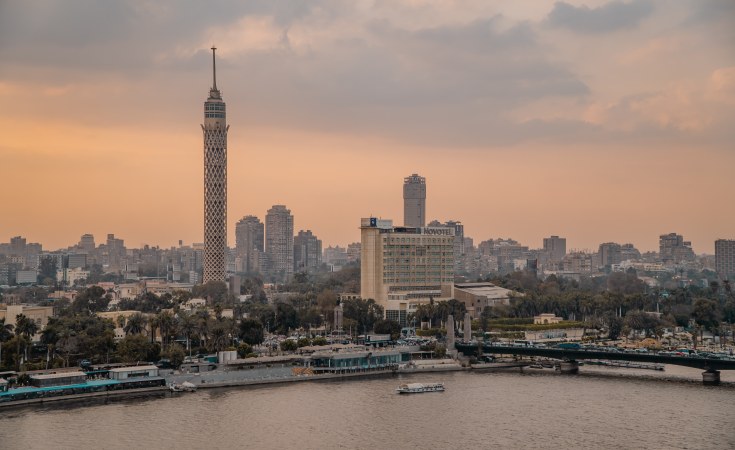Cairo — As the Egyptian economy struggles against negative headwinds from many directions, some sectors appear to be performing well.
Ordinary Egyptians are buying lower-end merchandise as their purchasing power is eroded by inflation and the effects of Egypt's weakening currency on the prices of imported goods.
President Abdel Fattah el Sisi told a gathering of international leaders several months ago that the Russia-Ukraine conflict was seriously affecting Egypt's economy. Egypt buys most of its grain from Russia and Ukraine and the price of importing wheat for a population of more than 100 million people has gone up drastically.
David Butter, an economist at Britain's Chatham House research group, told VOA that Egypt's rocky economy has been affected by a large increase in external and internal debt, made worse by a succession of crises, including COVID-19, the Russia-Ukraine conflict and increases in U.S. interest rates that have aggravated capital outflows from the country.
"It's a structural, fiscal deficit, big buildup of external debt, which is allied to large public debt, so there's a whole lot of heavy burdens that the economy is carrying and it has depended on to get through this situation on having a sustained period of relatively high growth and improved balance of payments. So, as soon as one or two wheels fall off this rather unstable wagon, then they're in big trouble," he said.
Butter notes that Gulf states came to Egypt's rescue by adding $13 billion in deposits to Egypt's central bank after international investors pulled $14 billion out of the country last year. Gulf states and the international community have helped Egypt out of numerous economic crises in recent years, including a $3 billion IMF loan in December.
Egyptian political sociologist Said Sadek told VOA that Egypt has agreed to privatize large portions of its economic sector in the next few years and that Prime Minister Mustapha Madbouli just returned from a trip to Qatar, where he discussed investment opportunities in Egyptian companies.
"Devaluation is expected this month, with the hope that this would push Gulf states to buy Egyptian companies that are listed and that would generate a lot of foreign currency that the government needs to pay debt and interest on debt," he said.
A shortage of dollars has caused Egypt's central bank to raise interest rates and triggered a decrease in the value of the Egyptian pound, making prices rise, since the country imports 65% of what its citizens consume.
Many merchants like Abdou, a dry cleaner, said they are downbeat.
"The economy is terrible," he said. "It's a struggle to make enough to live on. Lots of people come to rummage through the merchandise," he said, but that they don't spend a lot of money because they don't have a lot of money to spend.
Consumers have complained about how the crisis is affecting them. Jamila, a 45 year-old homemaker, buys chicken from a merchant who sells government-subsidized meat from a trunk along a large boulevard in the Cairo suburb of Dokki. She said that despite the subsidized prices, the meat is still too expensive.
While many people and businesses are struggling, others are flourishing. Jurgen Sterkau, who is the general manager of the Cairo Marriott in the Zamalek area, said that his hotel is completely full and that business has never been better.
"All the major hotels on the River Nile in Cairo," he said, "are doing extremely well (right now), despite the previous setbacks of the Russia-Ukraine conflict, as well as COVID-19."
Egypt also has prospects of increasing natural gas revenues from undersea fields.
Said Sadek points out that Egypt is the only country in the eastern Mediterranean that is capable of liquifying natural gas and sending it to Europe by pipeline, giving it a huge economic advantage over regional rivals.


